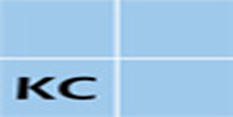Data Analytics Approach to Population Health Segmentation
Keywords:
population health segmentation, data analytics, healthcare management, predictive modeling, COVID-19, survival prediction.Abstract
This study investigated the segmentation of the population's health using data analytics. It looked at how population health segments were identified, how care was measured for those segments, and how the proper people were given care. It covered how data analytics was applied to care management, socioeconomic determinants of health, and predicting where health resources should be allocated. Patients with the highest risk of disease were identified, clinical treatment decisions were supported, patient identification accuracy and speed were improved, expenses were decreased, preventative measures were promoted, and medical research was supported through data analytics. This research used Sander's notion of onions to understand the technique of understanding the appropriate methodological choice, philosophy, theory creation, and data collection procedures to understand the influence of data-driven approaches to population health segmentation. The survival rate of Covid-19 patients was predicted using Decision Tree, Random Forest, and Logistic Regression models. Qualitative data analysis was also carried out to comprehend the factors influencing the application of data-driven population health segmentation approaches, the role of ineffective healthcare and service delivery, benefits, barriers, and strategies to develop and improve data-driven population health segmentation. The findings revealed
























